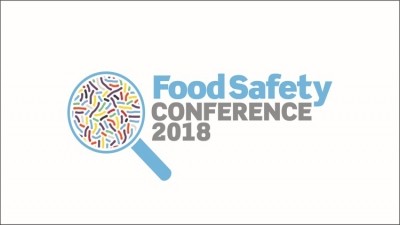Early warning system for food fraud developed

The horsemeat scandal of 2013 could have been detected up to seven months before its outbreak by using the innovative technology, the organisation claimed.
By collecting and monitoring data related to food fraud from published sources, the systems can identify patterns and irregularities that could be exploited by fraudsters and prevent an incident from happening.
This proactive response to prevent food fraud had its roots in basic criminology, according to Fera economist and data scientist Vahid Mojtahed. Mojtahed delivered a talk on the topic to delegates at Queen’s University Belfast’s ASSET2018 Summit on global food integrity, held from 28-31 May.
“In order to catch a fraudster, you have to think like a fraudster,” he told FoodManufacture.co.uk.
Historical incidents
Testing the systems using historical incidents of food fraud showed that cases of adulteration of mislabelling could have been detected more than three months before they became known.
The horsemeat scandal of 2013 could have been detected up to seven months before its outbreak, claimed Mojtahed.
“Our case study shows that there were sufficient signals at the time,” he added. “If someone was picking up these signals, they could have taken more samples, could have tested more rigorously and prevented it from happening.
“With respect to adulteration and substitution – the main categories of food fraud – 92% of the time, we can detect some anomalies in the active food supply chain three to six months before a fraud incident.”
Collecting information
The system takes data from the JRC European Media Monitoring system. It collects information in 60 different languages on food fraud from both the media and medical sources and is updated every ten minutes.
All of the data is also fed through a Bayesian network, a form of machine learning, to compute the probabilities of food fraud developing within the supply chain.
“We are trying to find a statistical relationship between past frauds and certain drivers and triggers of fraud, be that prices, countries, length of supply chain or corruption,” said Mojtahed.
“The first component of the big data early warning system does not do that, but it can help you to find a needle in a haystack. We use the big data to find certain warnings of some suspicious activities, which then can go into the database and network to tell what the most likely type of fraud incident would occur.”
Food Safety Conference: book now
Changes in regulation and future threats are the focus of Food Manufacture’s Food Safety Conference, which takes place in Birmingham this June.
Leading the line-up is Nina Purcell, director of Wales and local delivery at the Food Standards Agency, who will offer an update on the move to a new risk-based approach to inspecting food and drink businesses.
Other speakers include: Andy Morling, head of food crime at the National Food Crime Unit; Greencore group technical director Helen Sisson; Dawn Welham, president of the Chartered Institute of Environmental Health; and Sue Davies, strategic policy adviser at Which?
Chaired by Campden BRI director Professor Steven Walker, the conference will be held at etc.venues Maple House, Birmingham, on Thursday 21 June.
To find out more, please email or call Elizabeth Ellis on 01293 846593. Alternatively, click here for further details.















